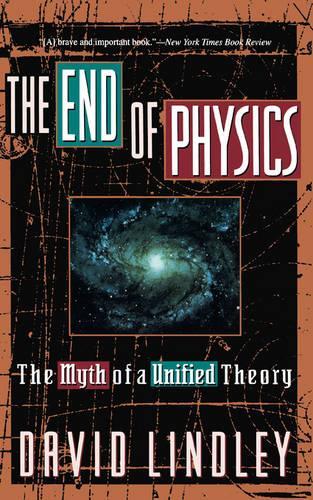
The End Of Physics: The Myth Of A Unified Theory
(Paperback)
Publishing Details
The End Of Physics: The Myth Of A Unified Theory
By (Author) David Lindley
Basic Books
Basic Books
11th August 1994
United States
Classifications
General
Non Fiction
Physics
530.01
Physical Properties
Paperback
284
Width 202mm, Height 126mm, Spine 17mm
284g
Description
For more than a century physicists have hoped that they were closing in on the Holy Grail of modern science: a unified theory that would make sense of the entire physical world, from the subnuclear realm of quarks and gluons to the very moment of creation of the universe. The End of Physics is a history of the attempts to find such a theory of everything; a forceful argument it will never be found; and a warning that the compromises necessary to produce a final theory may well undermine the rules of good science. At the heart of Lindleys story is the rise of the particle physicists and their attempts to reach far out into the cosmos for a unifying theory. Working beyond the grasp of the largest telescopes or the most powerful particle accelerators, and unable to subject their findings and theories to experimental scrutiny, they have moved into a world governed entirely by mathematical and highly speculative theorizing, none of which can be empirically verified. Lindley argues that a theory of everything derived from particle physics will be full of untestedand untestableassumptions. And if physicists yield to such speculation, the field will retreat from the high ground of science, becoming instead a modern mythology. This would mean the end of physics as we know it.
Author Bio
David Lindley, formerly a theoretical astrophysicist at Cambridge University in England and the Fermi National Accelerator labouratory in Illinois, has been an editor of the journals Nature and Science and is currently Associate Editor of Science News, in Washington, D.C. He lives in Takoma Park, Maryland.
